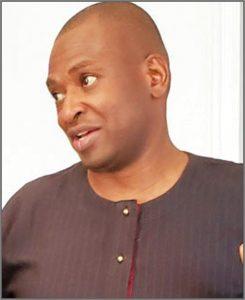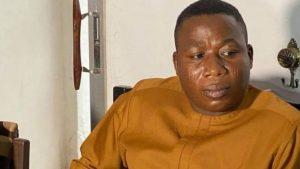By Afolabi Akinbola
Professor Sam Huntington first gave his famous and prescient lecture titled ‘Clash of Civilizations’ before the eggheads of America at the prestigious Foreign Affairs Institute in 1996 before fleshing it into a book form that became a bestseller. The cold war between America and the Soviet Union had come to a visible end with the collapse of the latter. Since nature abhors a vacuum, the professor predicted an inevitable showdown between the two major religions of Christianity and Islam as imminent. But he and the fat cats of the military-industrial complex in their native America could not foresee the spectacular and suicidal call of Osama bin laden’s confederates on America’s icons in September 2001.
There were muted jubilations in the Islamic world and some parts of Europe about the comeuppance of America. In Nigeria’s predominantly Muslim north, the suicidal attack was greeted with approval. Suicides were acts of desperation patented by the Hezbollah in Lebanon against Israel and the United States to devastating effects as a reaction to the military superiority of the duo. America later went after Osama and had him killed in Pakistan years later.
The military power of Islam as projected by the Ottoman Empire was shattered forever at the naval battle of Lepanto in 1571. The combined naval powers of Europe ensured the total defeat of the Ottomans and were derisively referred to as ‘the sick man of Europe’ for its effete posturing in the European comity of nations which temporarily put aside its differences to win a famous battle and ruled the world thereafter. Europe built its wealth on the blood and tears of the rest of the world. Muslim lands were despoiled to the tragic bemusement of the vanquished who came the sad conclusion that their rich heritage should not be trampled upon with arrogant impunity and the white man only retreated when faced with the ‘no compromise’ stance of a belligerent race of the faithful with long lists of achievements when the forefathers of their conquerors were cave dwellers!
Perhaps it may come as a surprise to some that the first university in the world was established by two women in Fez, Morocco in 859AD where students were schooled in a plethora of secular and religious subjects. The founders of the famous al-Quarawhyyin university were Fatima and Miriam al-Farhi. The concept of awarding degrees originated here and spread to later institutions. Spanish Muslims of Andalucía were strong advocates of education and between the 8th and 15th centuries was one of the world’s education and knowledge. Students from many denominations learned science from Muslims in an educational environment that emphasized the importance of tolerance.
One of the greatest Muslim contributions to civilization began in the 8th century when Muslim scholars translated the wisdom found in ancient Greek philosophical texts, creating one of the biggest transmissions of knowledge in world history. They brought the ideas of the great Greek scholars such as Socrates, Aristotle, and Plato into Europe, where their philosophies were translated into other European languages. The Muslims resurrected Greek philosophy and gave new life into a European continent that was bogged down with religious dogma and bloody internal conflicts.
The Ahmad ibn Tulun hospital was created in 870AD and equipped with an elaborate institution and a range of functions: a center for medical treatment, a convalescent home for those recovering from illness or accidents, and a retirement home giving basic maintenance needs for the aged and infirm who lacked a family to care for them. It was also the first hospital to give care to the mentally ill. Like other Islamic hospitals that soon followed, Tulun was a secular institution that felt it had a moral imperative to treat any person, man or woman, adult or child, rich or poor, as well as Muslims and non-Muslims. Muslims were recorded to have performed caesarian operations and such medical instruments as scalpels, bone saws, and forceps were used by Muslims and are still in use today by modern surgeons.
Muslims have also made significant contributions to science. The 7th to 16th centuries were known as the golden age of Islam when advanced science on a scale unprecedented in earlier human experience took place. Muslim scientists invented many of the basic processes and apparatuses used by modern-day scientists. The most important scientists were skilled in the practice of medicine, astronomy, mathematics, etc. The multi-talented sages, the central figure of Islamic science elaborated and personified the unity of the sciences. They orchestrated scientific development through their insights and excelled in their explorations as well.

The bloody antics of ‘Boko haram’ are baffling given the illustrious history of the past. Muslims have made enormous contributions to civilization. People should be taught about these contributions to dispel misconceptions so that major events and major trends in world history are no longer forgotten or blatantly ignored in a sad case of ‘historical amnesia’.
















